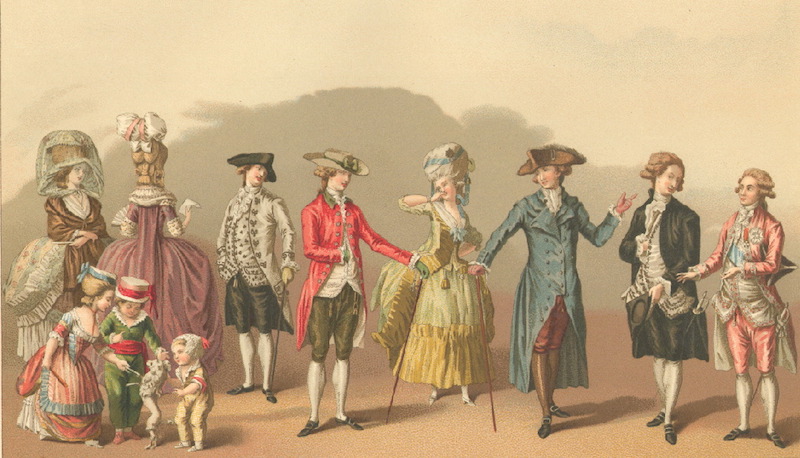La Maréchale d’Aubemer, Nouvelle du XVIIIème Siècle, or The Widow of Field Marshal d’Aubemer: A Novella of the 18th Century, posthumously published in 1867, is a novel by the author and memoirist Madame de Boigne, born Adélaïde d’Osmond (1781-1866). Mine is the first English translation, available here for the first time anywhere.
In Chapter 5, we meet the amoral Marquis d’Estouteville and his son Henri.
THE WIDOW OF FIELD MARSHAL D’AUBEMER: A NOVELLA OF THE 18TH CENTURY
CHAPTER FIVE
A Courtier
The Marquis d’Estouteville, a grand but fiscally embarrassed lord, and a very skillful courtier, concealed a profound immorality behind exquisite good breeding, and dissimulated his egoism behind the appearance of obligingness and flightiness. He seemed to have ruined himself carelessly and to provide pleasure to others, but he kept a better reckoning than one would have imagined and made no sacrifices except for his vices. He had sometimes been able to exploit those of princes and people in power in a way that was quite useful to himself, but with such a skillful, light hand and from such a lofty distance that one would have had to be privy to the details of his life to attribute to him the contempt that his conduct merited. Otherwise, his manners were charming, and of the sort of breeziness, due to his indifference to everything, that made him eminently sociable. He showed great regard for his wife, whose angelic virtues he vaunted to the world, but which he himself did not appreciate.
As long as she lived, she remained exclusively in charge of the education of their only son, and though Henri was only seventeen at the time of the Marquise d’Estouteville’s death, she had already succeeded in planting and germinating the seeds of all the best and most noble sentiments in his heart. For his part, M d’Estouteville had never tried to counteract her in this pious duty. He had grasped that he would encounter an invincible resistance and had no intention of hazarding his peace of mind. She was useful to him and it cost him very little to keep her. Never a word nor even a smile from his father could ever have led Henri to suppose that his father did not share the maxims of high morality professed by his mother, and if his love for her was more tender, more exclusive, his regard for the Marquis was equally great. Mme d’Estouteville refrained from disturbing this regard, and limited herself to fighting those influences that could have operated to seduce him at the time of his entry into society. Fate, however, decided otherwise, and a violent fever carried the Marquise off so rapidly that Henri, then with his regiment, was not able to arrive in time to receive her last words. Perhaps at this supreme moment she would have warned him against the fallacious doctrines of the Marquis. They were only too well known to her, for, before posing as an admirer of her virtues, he had tried to make her an accomplice to his intrigues. However, death did not accord her an instant, and his cruel work was completed several hours before the devastated Henri arrived.















